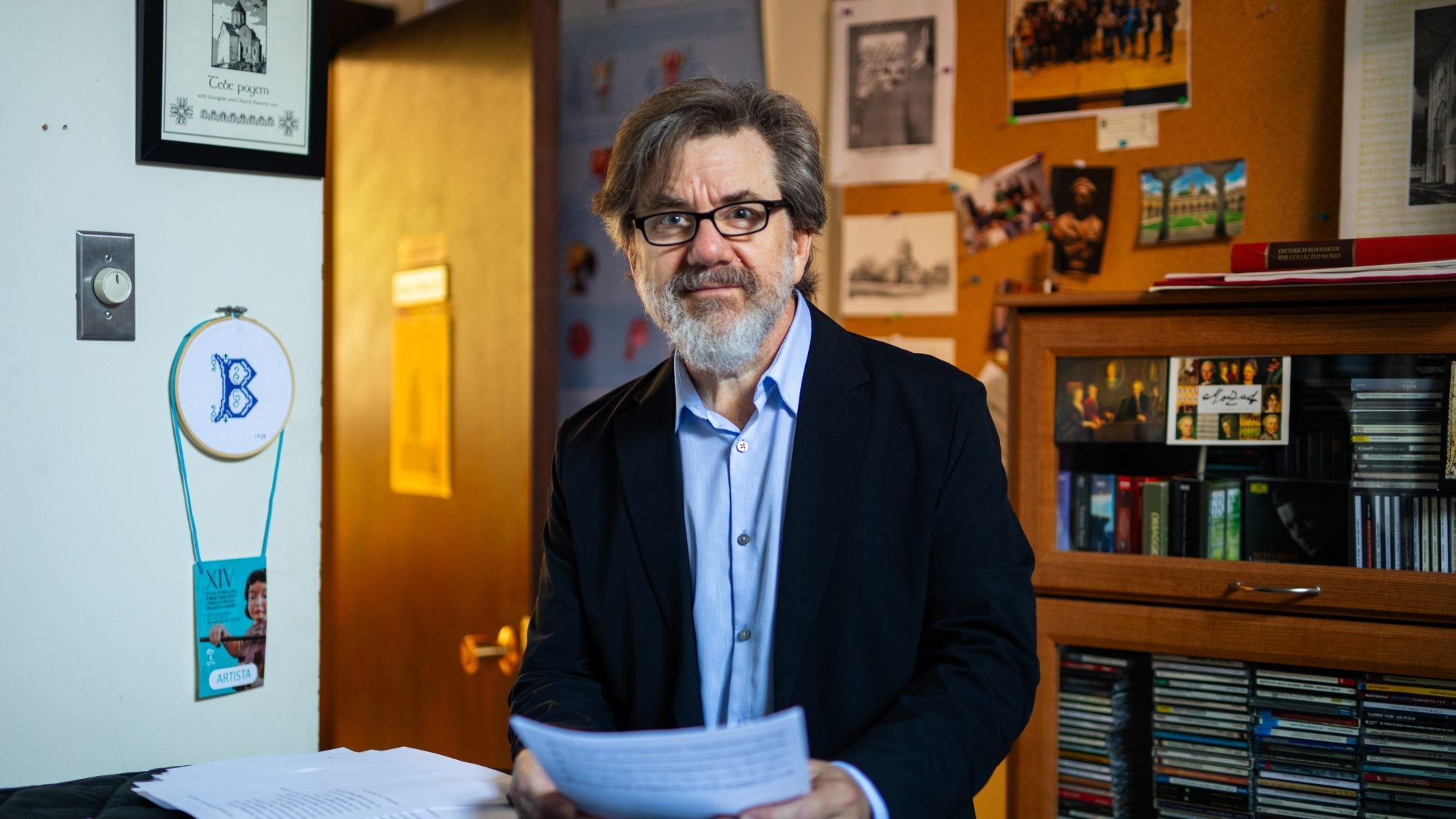Every May, Georgetown hosts commencement ceremonies for each of the university’s 10 schools in Washington, DC.
While most people come and go to one ceremony to celebrate their graduates, a select few are present at multiple, if not every, single celebration throughout the marathon weekend. 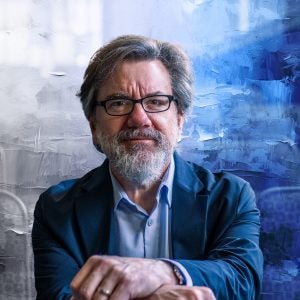
One of those people is Frederick Binkholder.
Binkholder, a professor of the practice in the performing arts in the College of Arts & Sciences, has taught at Georgetown for 24 years and directs two of Georgetown’s premier choral groups, the Concert Choir and Chamber Singers. And every year, Binkholder leads a select group of students from both choirs to send off the graduating class in song over commencement weekend.
This year, Binkholder and his choral ensemble made a whirlwind tour as they traveled across the world for commencement at Georgetown University in Qatar before returning to DC to perform at the commencement ceremonies on the Hilltop.
While the thought of sitting through ceremony after ceremony in the blazing May sun may put some people off, for Binkholder, it’s a blast.
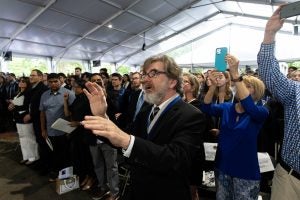 “The celebratory time makes up for any type of repetitiveness you have. It’s just too much fun,” he said.
“The celebratory time makes up for any type of repetitiveness you have. It’s just too much fun,” he said.
Meet the man behind the music at commencement, and discover what Binkholder loves about music, how he keeps commencement fresh year in and year out and why he never listens to music for fun.
How I got into music: I’ve always loved music. I loved listening to music and doing little musical things, but I didn’t sing in a choir in high school or junior high. I started out studying mechanical engineering in college. [I had to take a fine arts class], and so I tried choir. That led into this deep expansion of myself into music, singing and choral music. The next year, I transferred and went into a bachelor of music education degree with a conducting emphasis. I received my bachelor’s degree and started to conduct professionally right out of college, so it was great fun.
What I love about music: It’s the order, the logic of it and the thoughtfulness of the composition. When you’re dealing with master composers, they have thought so much about the text. They’ve thought so much about the meaning of the text and how they can best represent it musically. When you’re listening to a composition, you’re absorbing the entirety of it, the thoughtfulness, the hours and hours of work that have gone into it.
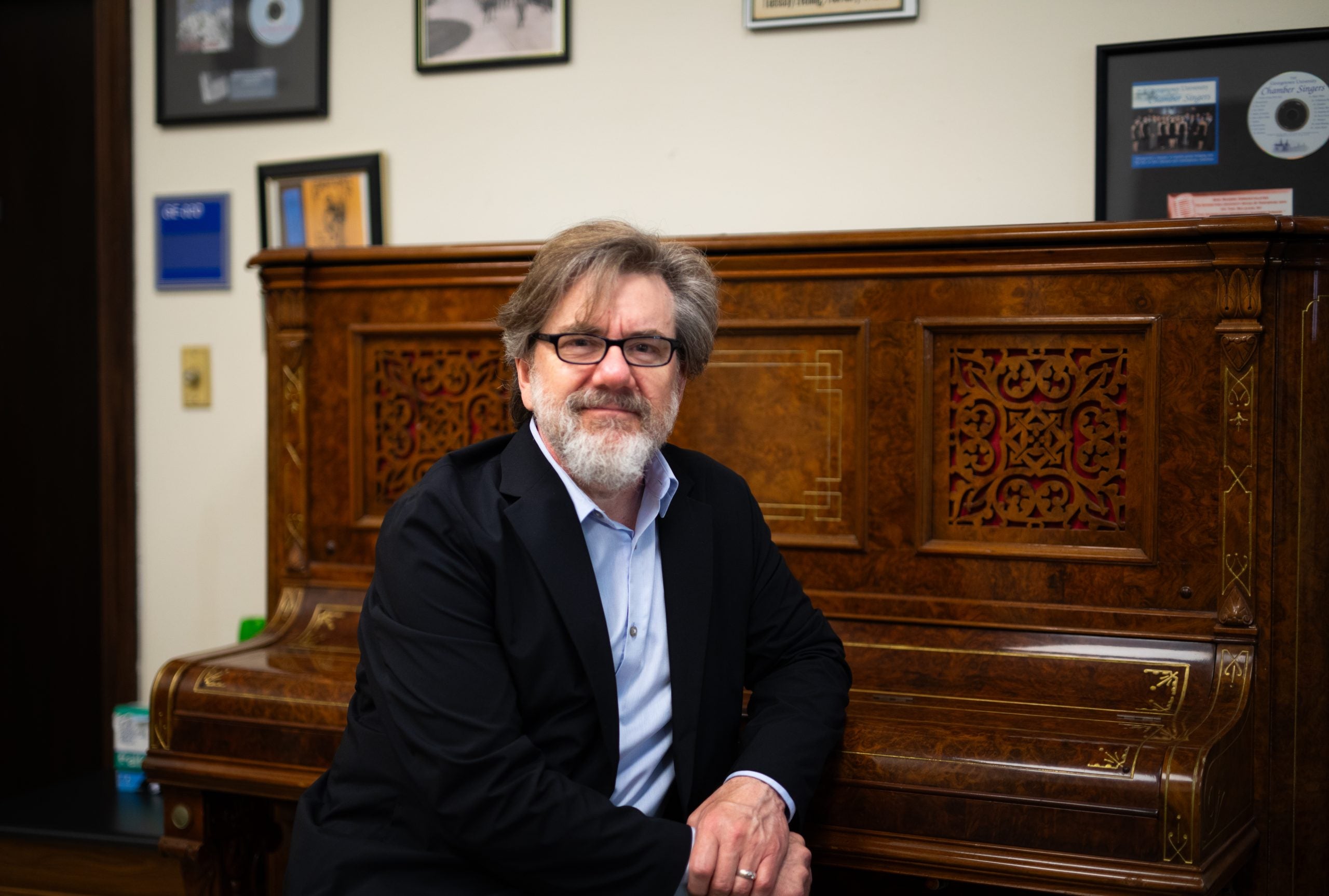
How I got started in performing at commencement: I do the music for the New Student Convocation. Because of the success of that program, it started to stretch into commencements. I was asked to do a few commencements by schools, and then more and more [schools.] So now we sing at every commencement except for the medical school and law school. So now we do 10 commencements plus the senior convocation.
The thing that I love about commencement weekend: As a parent, I can see the pride that the parents show every single time. They’re just so happy because the kids have done such an incredible job. The other thing that I love is a lot of my students will also walk through commencement. Some of them will come and sing in their robes either the “Star Spangled Banner” or “Alma Mater,” and that’s always a great joy to me because they’ve done it. They come up and sing because [singing] was such an incredible part of their own education, not only the classroom work, but also being in a choral ensemble and being artful, which I just dearly love.
How I keep every commencement ceremony fresh every year: The thing that keeps it fresh is simply that I’m not the only one who’s doing this. There are faculty members I see who do every service as well. We’re constantly checking in on each other because we know that this is not about us, but it is everything to the students. That’s why you do it every single time. It is all about them, and that’s what’s important. It’s three days out of my life, and they’ve spent four years, so it doesn’t really matter to me.
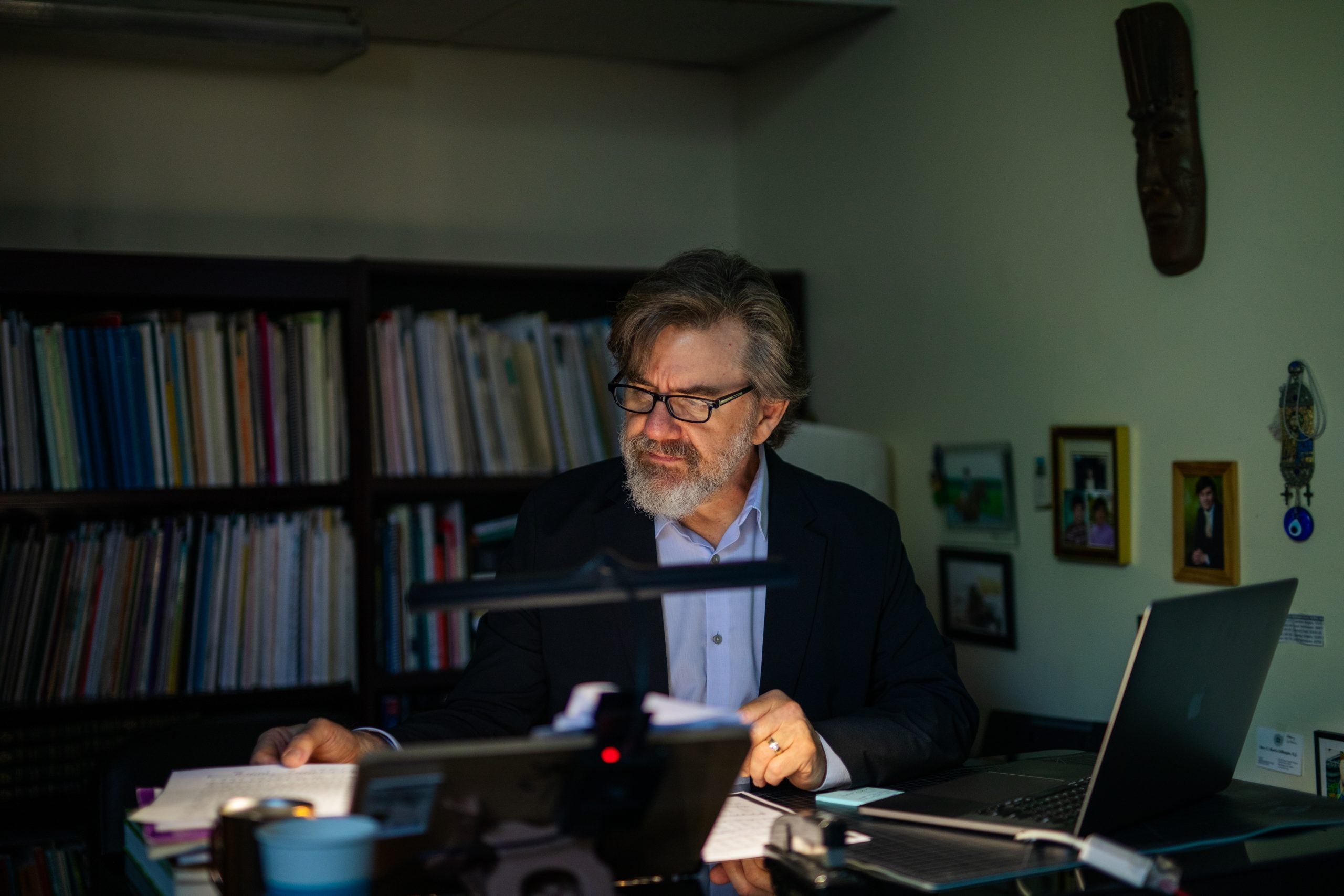
How I have fun at commencement: It’s a special time because the students get to see me outside of class, and we’re kind of just playing around back there, playing chess or cards or just talking. Then we come out and do our job, and then we go back. Sometimes we go out and listen to the speeches because they’re incredibly inspiring. The celebratory time makes up for any type of repetitiveness you have. It’s just too much fun.
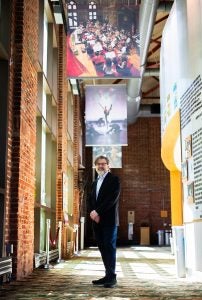 The best part of my job is: Dealing with the students. They want me to teach them a higher art form. What better job is there? I love it because they want to learn, and they want to be the best artists they can possibly be. They want to work hard, and they want to create a really beautiful performance. They want to work on their voices. They want to work on themselves. What’s kept me here for so long is that every year it’s the exact same thing. It might be different students, but it’s the same intent and the same drive that they have to express their souls. It’s marvelous, just marvelous.
The best part of my job is: Dealing with the students. They want me to teach them a higher art form. What better job is there? I love it because they want to learn, and they want to be the best artists they can possibly be. They want to work hard, and they want to create a really beautiful performance. They want to work on their voices. They want to work on themselves. What’s kept me here for so long is that every year it’s the exact same thing. It might be different students, but it’s the same intent and the same drive that they have to express their souls. It’s marvelous, just marvelous.
I can’t listen to music for fun because: I just can’t stay out of it. I’ve tried, and if I’m going to listen to music, I listen to it for purpose. When I’m working or doing something outside, I’ll listen to a book on tape or a podcast. I just can’t do music because I have to be in the right mode. It’s so geeky.
My love for travel: One of the greatest things about being a musician is I get to travel a lot. Usually during the summer, my wife, son and I, we tend to travel all over the U.S. My wife is Korean, so we spend a lot of time in Korea. And if I have a tour someplace, I’ve been all over. I’m from the Midwest, so anything outside of flat farmland is magical to me.
My favorite place I’ve traveled to: Georgia. The Caucasus Mountains. Everybody sings. They love to sing. You eat, drink and sing and look at the beautiful mountains. It’s so idyllic there.
What Georgetown means to me: It’s the place I’ve been able to grow, not only as a musician but as a person and teacher. It’s grown into a profession and an identity for me. I would always say when I was first coming through that I was a conductor. But now I would say that I’m a professor. I’m still a professional conductor, but I’m also a professor who teaches these brilliant students.
